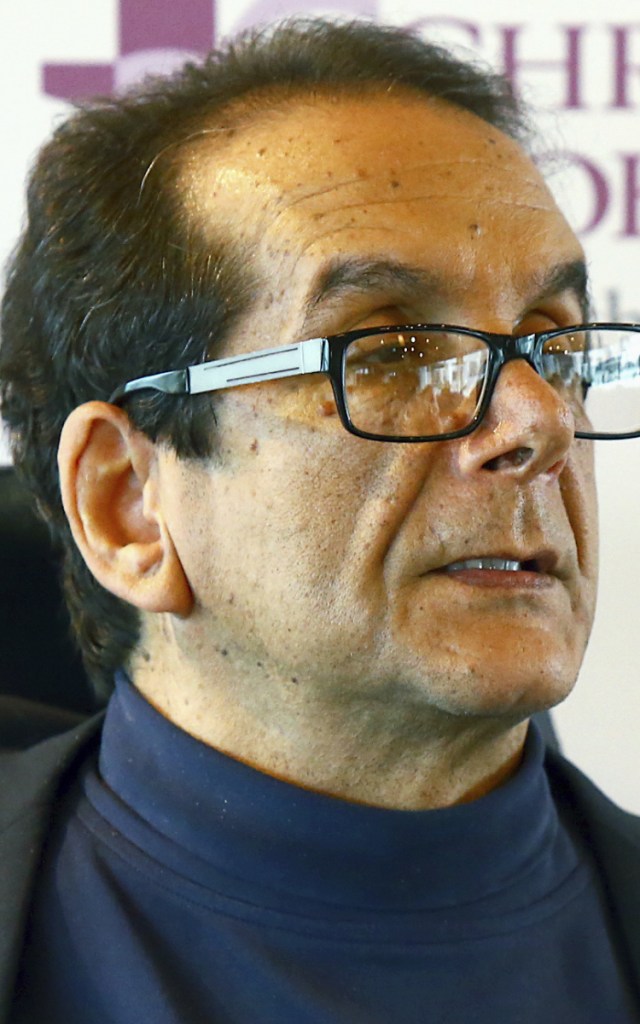Charles Krauthammer, a Pulitzer Prize-winning Washington Post columnist and intellectual provocateur who championed the muscular foreign policy of neoconservatism that helped lay the ideological groundwork for the 2003 U.S.-led invasion of Iraq, died Thursday at 68.
The cause was cancer of the small intestine, said his son, Daniel Krauthammer.
“I believe that the pursuit of truth and right ideas through honest debate and rigorous argument is a noble undertaking,” he wrote in a June 8 farewell note. “I am grateful to have played a small role in the conversations that have helped guide this extraordinary nation’s destiny. I leave this life with no regrets.”
A star of page and screen, Dr. Krauthammer was one of the highest-profile commentators of his generation. In addition to his syndicated weekly column in The Washington Post, which garnered him a Pulitzer in 1987, he was a marquee essayist for magazines across the political spectrum, including Time, the New Republic, the Weekly Standard and the National Interest foreign policy journal. He also was a near-ubiquitous presence on cable news, particularly Fox.
By any measure, Krauthammer cut a singular profile in Washington’s journalistic and policymaking circles. He graduated in 1975 from Harvard Medical School – on time, despite a diving accident that left him a paraplegic – and practiced psychiatry before a restless curiosity led him to switch paths. Instead of diagnosing patients, he would analyze the body politic.
Jacob Heilbrunn, author of “They Knew They Were Right: The Rise of the Neocons” and editor of the National Interest, said in an interview that Krauthammer “crystallized conservative thought and exerted influence by setting the terms of public debate at key moments in the nation’s political life.”
Known for acerbic, unsparing prose and hawkishness on U.S. and Israeli security matters, Krauthammer said his politics were shaped by growing up in the post-Holocaust years with Jewish parents who had escaped Nazi Europe.
He grew up attuned to the “tragic element in history,” he once told a C-Span interviewer. “It tempers your optimism and your idealism. And it gives you a vision of the world which I think is more restrained, conservative, if you like. You don’t expect that much out of human nature. And you are prepared for the worst.”
Survivors include his wife, Robyn, their son, and his mother.
Send questions/comments to the editors.



Comments are no longer available on this story